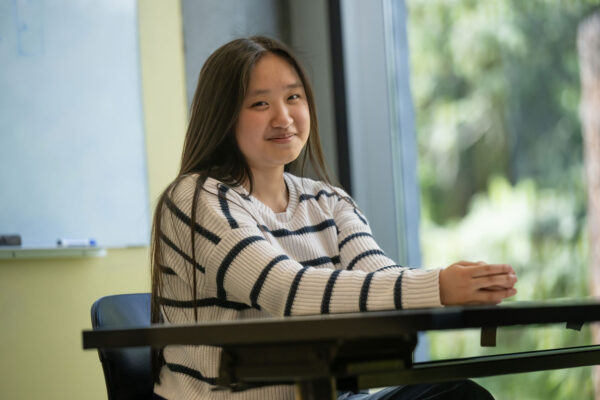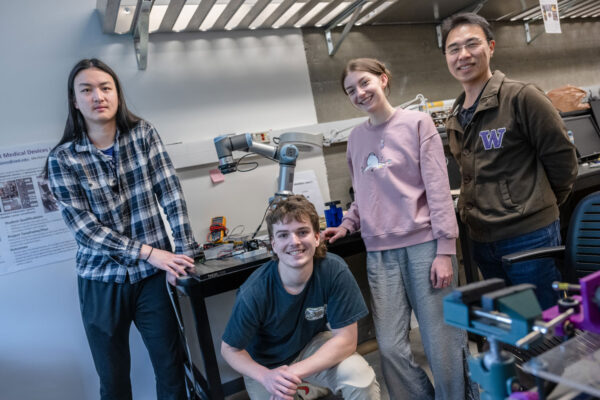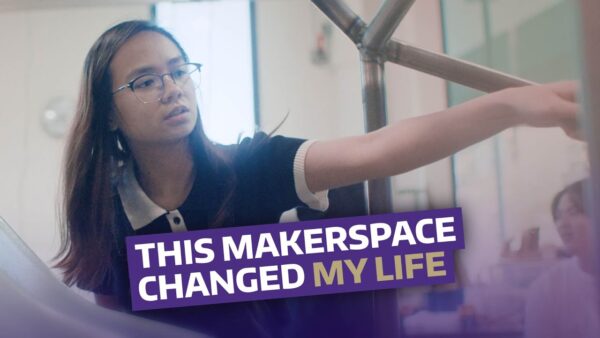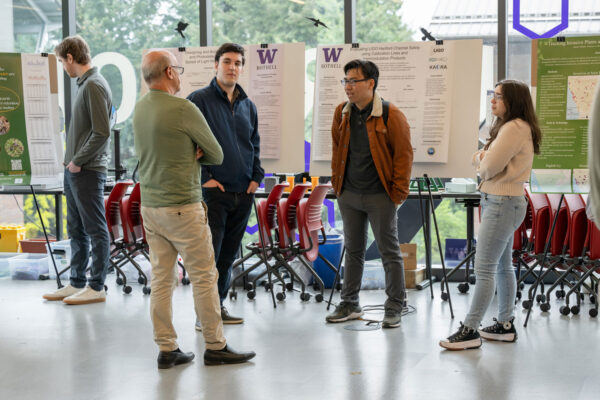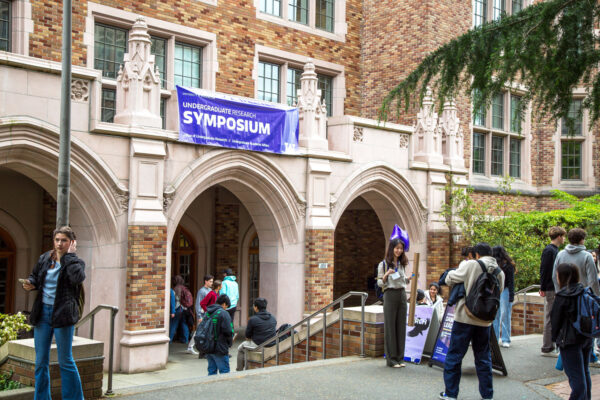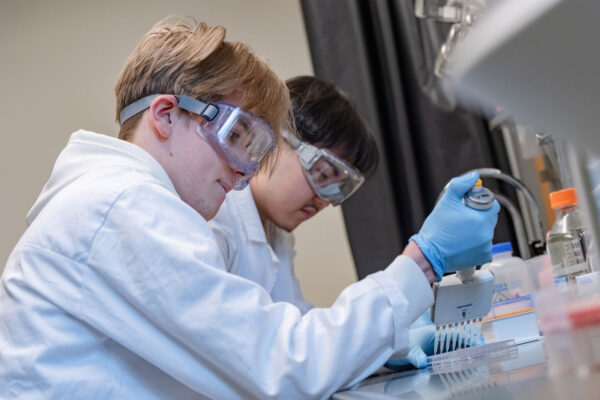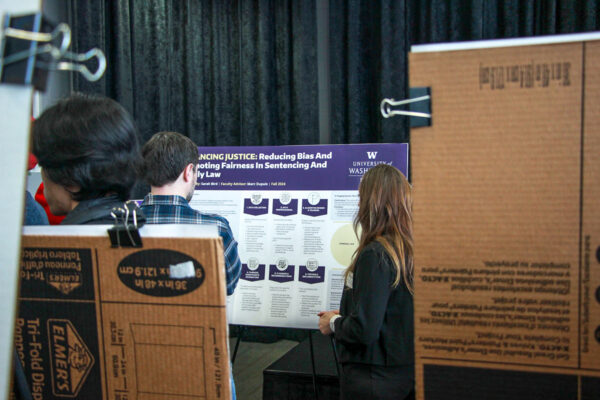News from the Office of Connected Learning
Category: Research and Creative Projects for Undergrads
2025 President’s Medalist blazes her own path
Emerald Chuesh, who graduated in June with a bachelor’s degree in Health Studies from the University of Washington Bothell, was named the 2025 President’s Medal recipient, the highest academic honor awarded to a UW Bothell student. Her passion for research and participation on a test anxiety project helped her grow and become more open to...
July 31, 2025
Improving CPR outcomes with robot assistance
Dr. Jong Yoon, associate professor in the University of Washington Bothell’s School of STEM, is developing technology to better support first responders in these critical moments through his Smart Medical Devices Lab, Yoon leads the “Collaborative Robot-Assisted Ultrasound System for CPR” project. Dr. Yoon emphasizes that the project’s goal is not only to create innovative...
July 24, 2025
Measuring biases of GenAI
Dr. Afra Mashhadi, an assistant professor at the University of Washington Bothell, focuses her research on identifying and addressing bias in generative AI (GenAI) systems like ChatGPT. Dr. Mashhadi collaborates with UW’s Information School, and a team of student researchers in her latest research called The AuditLab project aimed to create a set of algorithms...
July 17, 2025
Breaking Things, Building Dreams: My Engineering Story
Samantha Brown, a Mechanical Engineering major, Class of 2025, embodies the spirit of the Research & Creative Projects and Community-Engaged Learning & Research Programs. Through hands-on engineering projects like leading the Eco-AR Club, Sam engages deeply in applied research and innovation. By mentoring peers and fostering diversity in STEM, Sam’s work also aligns with the university’s mission to connect...
July 10, 2025
Student research and capstone projects celebrated in annual showcase
At UW Bothell’s 2025 Student Academic Showcase, nearly 100 students across disciplines participated to demonstrate their efforts through research and capstone projects and their application to tackle real-world challenges. Ranging from an exploration of female CEO’s positive influence on corporate culture and DEI practices, the development of a hand-sized ECG device for improving heart rate...
May 28, 2025
Annual symposium recognizes undergraduate researchers and their mentors
The University of Washington celebrated the 28th Annual Undergraduate Research Symposium, with more than 40 UW Bothell students showcasing their efforts across 39 research projects. In addition to the numerous topics, ranging from an introduction to a fingertip ECG monitoring device to a study on Afghan women’s resilience through underground education, the event also honored...
May 5, 2025
Center for Biotechnology Innovation & Training launches on-campus internships
The Center for Biotechnology Innovation & Training (CBIT) at UW Bothell launched an internship opportunity on campus for STEM students with hands-on experiences. The CBIT Director and the initiative, Dr. Guy Hamilton and Dr. Lori Robins, aim to connect students with real-world biotech projects and mentorship by industry professionals, strengthening insights into academic and industrial...
April 4, 2025
Capstones showcase range of STEM projects
The 2024 Undergraduate Capstone & Symposium event at UW Bothell showcased various research projects from undergraduate students in the School of STEM. They demonstrated their experiential learning experience through projects across multiple fields, including app development and gene editing, and prepared themselves for future opportunities and impactful careers.
January 30, 2025
2024 ISCRM Fellows
Congratulations to the 2024 ISCRM fellows: Christian, Asmaa, and Sophia. The UW Institute for Stem Cell and Regenerative Medicine (ISCRM) is a competitive fellowship intended to enhance the educational experience of an undergraduate student while they are engaged in research guided by UW ISCRM faculty. The Bothell students receive a summer research stipend, which is...
November 22, 2024
2024 Founders Fellow William Uyeta
William Uyeta, Business Administration student, received a 2024 summer research Founders Fellow award. Here are a few details about his summer research. Mentor: Dr. Xiahua Anny WeiAbstract: With the increasing influence of digital platforms on financial markets, the role of social media engagement in shaping stock performance has gained growing attention. This study builds upon...
October 31, 2024
